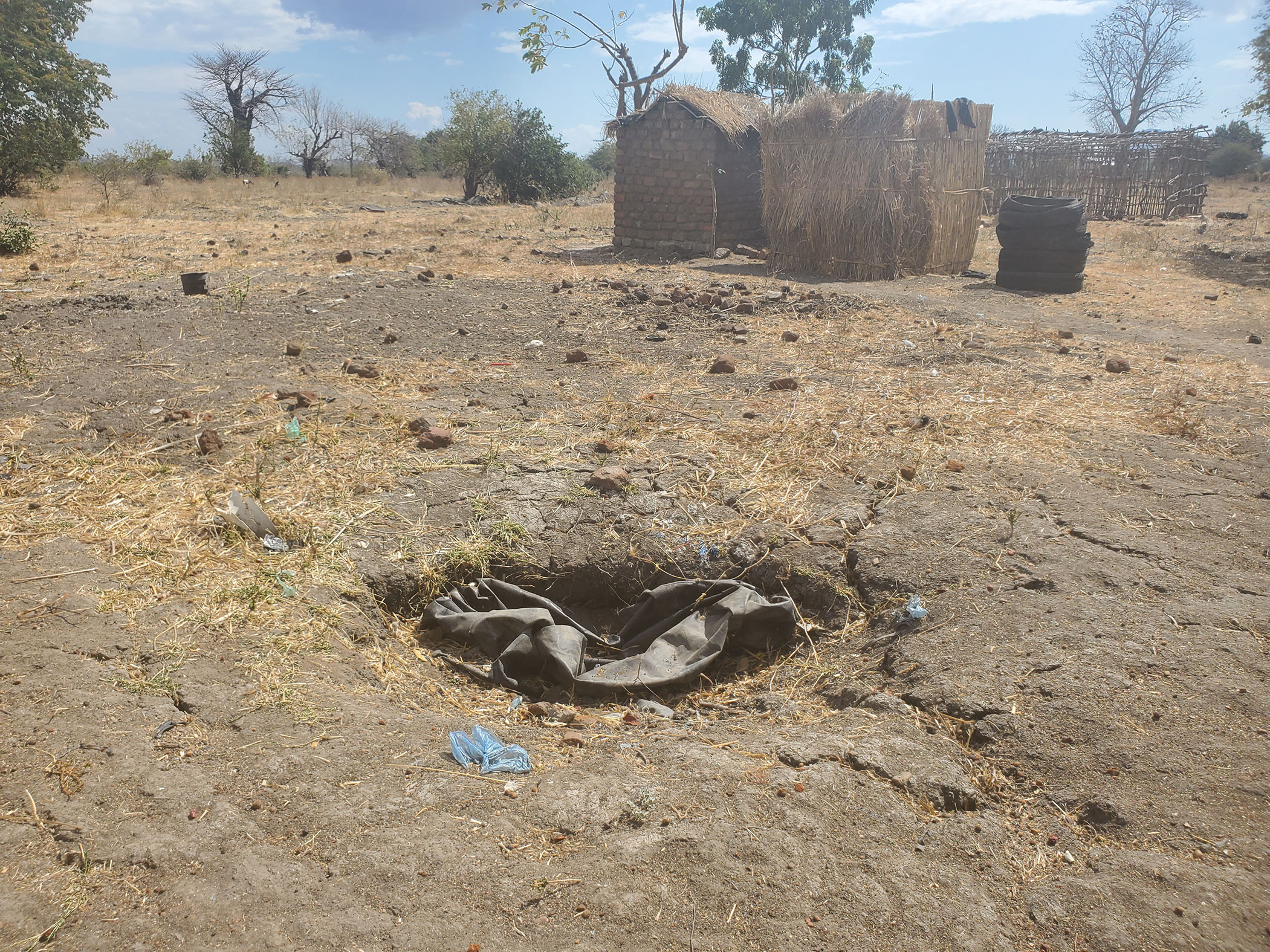
Through a new bilateral carbon trading pact, Switzerland is poised to fund thousands of household biogas reactors in Malawi. Marc Kalina has worked with biogas projects across Southern Africa and explains why they often fail to make their promised impact.
Household biogas has been touted for years as a 'silver bullet' development intervention on the African continent: a low-cost and accessible technology that can provide a sustainable energy source1, combat deforestation2, manage organic waste3, and improve health.
Biogas is produced naturally by microorganisms that break down organic matter through a process of anaerobic digestion; if you've ever noticed bubbles in a swamp, you've seen it in action. When the process is controlled in a reactor, the resulting combination of methane (CH4) and other gasses is highly flammable and can directly be used for cooking, lighting, or electricity generation, thereby replacing firewood or charcoal as fuel.
Moreover, because the methane - a powerful greenhouse gas (GHG) about 28 times more harmful than CO2 - is captured and burnt instead of being released into the atmosphere, biogas can reduce emissions substantially.
A tempting intervention
As such, it is hardly surprising that biogas projects have become a popular focus of donor financing, proliferating across the Global South through funding from organisations such as the World Bank, United Nations, and increasingly, climate funds for cutting GHG emissions abroad. Within the international development aid space, climate funds from carbon offsets are of ever-increasing importance, i.e., as a means for the North to pay for their climate sins by shifting the burden of emissions reductions to others. During the last years, immense amounts of money have been spent on countless biogas projects all over the African continent.

Switzerland is a major player within these markets, and recently signed a bilateral carbon trading pact with Malawi, which, among other mitigation projects, will fund the installation of 10,000 new biogas plants at households across the country.4 Although these funds represent an enormous opportunity to materially transform the lives of thousands, biogas projects, in my experience, have not demonstrated that potential.
A history of failed interventions
As a scientist, researcher, and project manager, I have spent much of the past five years engaging with household biogas interventions across Sub-Saharan Africa. Furthermore, at the Global Health Engineering (GHE) group, we have spent the past two years tracking and mapping biogas outcomes in Malawi, an investigation that has encompassed every biogas investment in the country's Southern Region.
Although we have seen several projects with positive outcomes, the overwhelming trend has been one of failure: disenchanted or unengaged beneficiaries who were passive participants in their own interventions, dozens of failed or abandoned projects that had been 'parachuted' in on rural households, and millions of dollars spent to no appreciable benefit for locals or the environment.5 Why?
As a biological process, anaerobic digestion can be temperamental, and households often lack the water, resources, and technical skills to keep such a piece of infrastructure operational year-round. Would you feed manure into a pit every day to keep your kitchen stove running? And if it broke, would you be able to fix it? Or would you just us go back to what you were doing before?
Over the years, I have literally stumbled across the ruins of hundreds of failed and abandoned biogas projects5, servings as sad reminders of poorly conceptualized projects and a fatal unwillingness of donors, practitioners, and scholars to critically engage with some difficult questions about project outcomes and failures.
What Malawi needs now
If carbon offsets are used to fund projects that are doomed from the start, what difference is being made, beyond feigned surprise and happy development aid consultants who easily move on to the next project? Switzerland, as a leading donor and technology exporter, should not legitimise a known development failure, simply for the sake of achieving its carbon commitments. This is especially pertinent as carbon offset projects recently have come under fire for overstating their climate impacts.6, 7
'With carbon trading emerging as a growing source of biogas funding, project outcomes must face greater critical reflection.'Marc Kalina
Meanwhile, Malawi (one of the world's lowest CO2 emitters) sits on the frontlines of Southern Africa's climate change battle. In March of this year, the country was slammed by Cyclone Freddy, and catastrophic flash flooding has caused hundreds of deaths and displaced tens of thousands of individuals. The country was already experiencing a resurgence of cholera, which in the cyclone's wake, is feared to intensify, and the damage to critical infrastructure, including its hydroelectric system, will set the country back decades. What Malawi needs now is urgent humanitarian and development assistance.
Moreover, as extreme weather events are expected to increase in frequency and intensity, what role do carbon funds, like those committed by Switzerland, play in mitigating that onslaught? By investing millions into technologies with poor records of success, in a country with devastating developmental and environmental challenges, are we contributing to the radical transformation that is needed?
Not repeating the same old mistakes
In a 2022 comment article5, my co-authors highlighted the uncritical way in which biogas projects have been discussed by both implementers and scholars. Scientific literature tends to look forward and focus on the positive, chasing the idealised potential, but contains little feedback about what happens with projects on the ground. We argue that that the way we talk about and internalise biogas failures must be critically reflected upon, and that more discussion is needed on the role of funding and funders in project outcomes.
With carbon trading emerging as a growing source of biogas funding, this same critical lens needs to be applied. Carbon projects must not become a box ticking exercise, with decisions made in Europe on funds that must be spent. Rather, interventions should be driven by needs on the ground, and accompanied by a scientific process that can shape decision-making and implementation. Otherwise, we are missing an opportunity to use carbon funds to enact meaningful change, and countries like Malawi will continue to suffer for our emissions and unchecked consumption.
1 Ali M M, Ndongo M, Bilal B, Yetilmezsoy K, Youm I, Bahramian M (2020) Mapping of biogas production potential from livestock manures and slaughterhouse waste: A case study for African countries. Journal of Cleaner Production 256: 120499. doi: external pagehttps://doi.org/10.1016/j.jclepro.2020.120499
2 Bär R, Reinhard J, Ehrensperger A, Kiteme B, Mkunda T, Wymann von Dach S (2021) The future of charcoal, firewood, and biogas in Kitui County and Kilimanjaro Region: Scenario development for policy support. Energy Policy 150: 112067. doi: external pagehttps://doi.org/10.1016/j.enpol.2020.112067
3 Bruun S, Jensen LS, Khanh Vu VT, Sommer S (2014) Small-scale household biogas digesters: An option for global warming mitigation or a potential climate bomb? Renewable and Sustainable Energy Reviews 33: 736-741. doi: external pagehttps://doi.org/10.1016/j.rser.2014.02.033
4 Klik (2023). Malawi Dairy Biogas Programme. Platform International: Factsheet. Foundation for Climate Protection and Carbon Offset, Klik. Zurich, Switzerland. Accessed at: external pagehttps://www.international.klik.ch/activities/mitigation-activities/publications/malawi-dairy-biogas-programme
Swiss Federal Office for the Environment (FOEN): Overview of Switzerlands external pageBilateral climate agreements
5 Kalina M, Ogwang JÒ, Tilley E (2022). From potential to practice: Rethinking Africa's biogas revolution. Humanities and Social Sciences Communications, 9(1), 374. doi: external pagehttps://doi.org/10.1057/s41599-022-01396-x
6 Gill-Wiehl A, Kammen D, Haya B (2023). Cooking the books: Pervasive over-crediting from cookstoves offset methodologies. PREPRINT (Version 1). Accessed at Research Square: external pagehttps://doi.org/10.21203/rs.3.rs-2606020/v1
7 Toetzke, M. (2023). Voluntary carbon offsets fail to deliver what they promise. Zukunftsblog. ETH Zurich, Zurich, Switzerland. Accessed at: https://ethz.ch/en/news-and-events/eth-news/news/2023/07/blog-voluntary-carbon-offsets-often-fail-to-deliver-what-they-promise.html






